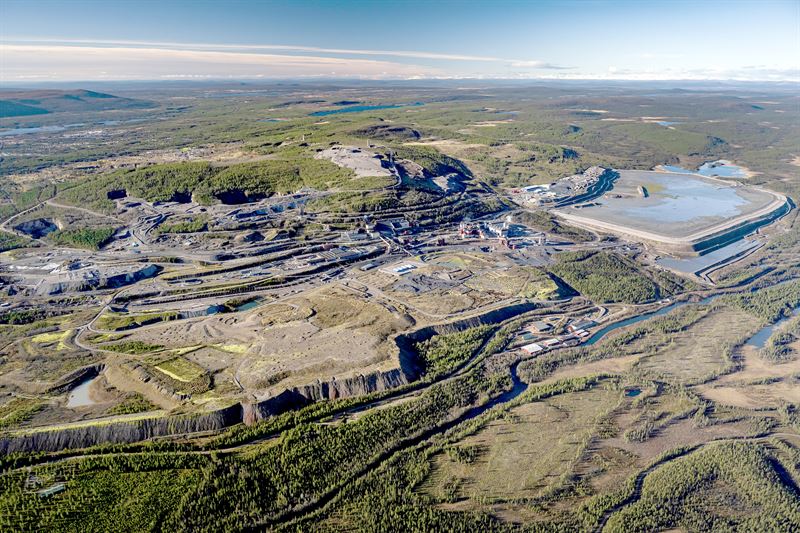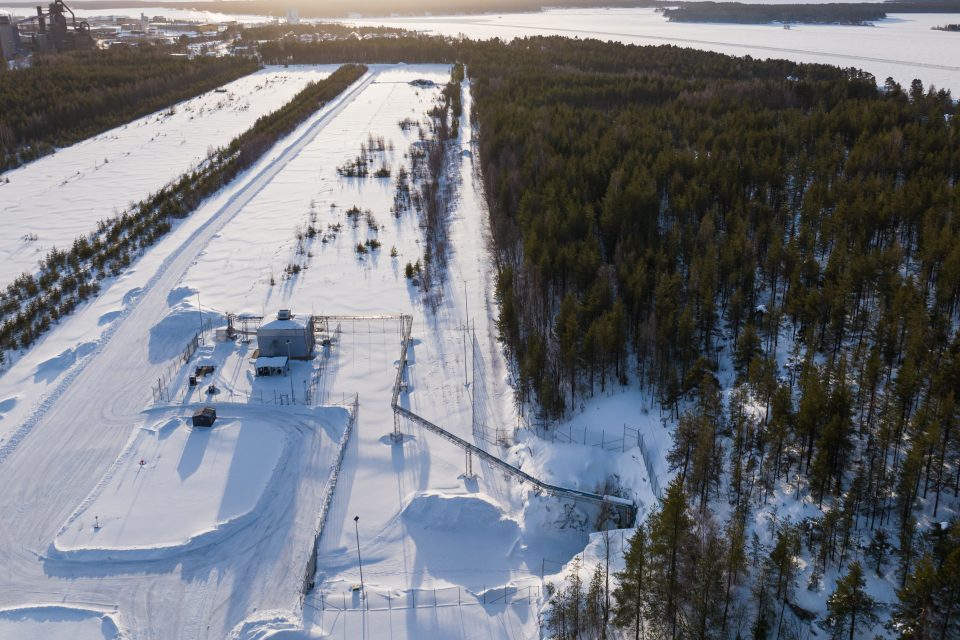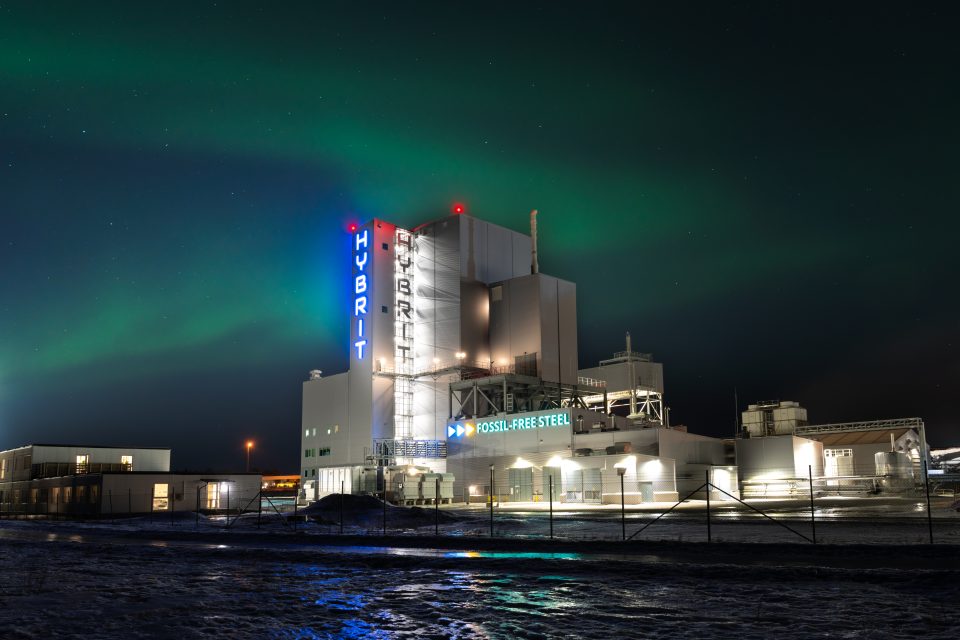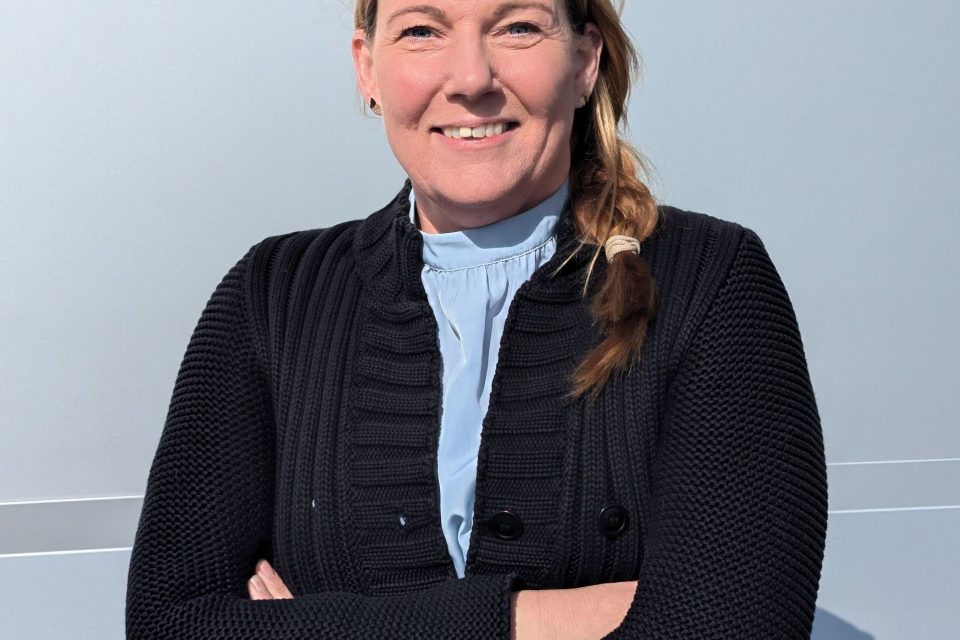Positive decision on support for LKAB and HYBRIT

The HYBRIT initiative receives support from the Industrial Leap (Industriklivet), the Swedish Energy Agency’s program to support Swedish industry’s transition to fossil-free. A total of SEK 3.1 billion is granted for the establishment of a first demonstration plant in Gällivare for the production of fossil-free sponge iron on an industrial scale. LKAB is responsible for the construction of the planned plant and will be the main recipient of the support.
– The processing and production of fossil-free sponge iron is central to the climate and to Swedish competitiveness. We are pleased with the announcement that the state is participating and sharing the initial risk in this crucial step to industrialize the HYBRIT technology. In order to counter climate change, we need to move forward quickly, and to keep up the pace, it is important that we get all the prerequisites in place for future investment decisions,” says Jan Moström, President and CEO of LKAB.
Hybrit Development AB (HDAB), owned by LKAB, SSAB and Vattenfall, had originally applied for SEK 4.9 billion in support from Industriklivet for the next step in the development of the HYBRIT initiative. On October 31, 2023, HDAB and LKAB submitted a supplementary application stating that LKAB will be responsible for the construction of the planned demonstration plant and will also be the main recipient of the requested support. At the same time, the amount of aid applied for was reduced to SEK 3.7 billion.
The demonstration project is one of 35 projects from 12 EU countries that are part of the Hy2Use IPCEI integrated project. IPCEI stands for Important Projects of Common European Interest and enables EU Member States to provide government support to priority initiatives with a strategic common European interest.
– The future competitiveness of Swedish industry lies largely in becoming fully fossil-free. Therefore, the investments made in Industriklivet are of great importance, not only for the sake of the climate and the environment, but also for the supply of skills and employment in both new and old industrial locations in our country. The decision we are now taking is the largest financial decision made so far in this work and it is an important one,” says Robert Andrén, Director General of the Swedish Energy Agency.
Although the HYBRIT technology has been tested and proven successful, it has not yet been fully used on a large scale. The support now granted is intended to be used to get past the initial stage, from pilot to industrial production, with a first demonstration plant planned at LKAB’s industrial area in Gällivare. This is in line with the development of the HYBRIT cooperation and the aim of developing a fossil-free value chain for iron and steel production with fossil-free electricity and hydrogen.
The plan for the demonstration plant is to produce over 1.3 million tons of sponge iron per year, volumes intended for SSAB’s transition. With sponge iron produced with hydrogen instead of coal, carbon dioxide emissions in the steel industry can be largely eliminated by replacing coal-fired blast furnaces with electric arc furnaces.
– We welcome the decision as an important signal of the potential of the green transition for Swedish competitiveness. We have started the transition of SSAB’s steel production in the Nordic region, which will reduce carbon dioxide emissions in Sweden and Finland by ten and seven percent respectively in around 2030. The HYBRIT technology has made us global pioneers in fossil-free steel production and we look forward to scaling up our pilot deliveries of fossil-free steel to commercial levels. Today’s announcement is therefore important for our strategy going forward,” says Martin Pei, EVP and CTO, SSAB.
The electricity demand for the demonstration plant with HYBRIT technology is estimated at about 5 TWh per year at full operation and is primarily for large-scale production of fossil-free hydrogen needed for the direct reduction process.
– This is gratifying news, for the climate, but also for Sweden’s future competitiveness. Cooperation on the entire fossil-free value chain for fossil-free steel has proved successful. This and access to competitive fossil-free electricity is and will be crucial to the success of the transition. Sweden already has a fossil-free electricity system, and thus has an advantage over most other countries in the world, but now we need to ensure that we expand the supply of fossil-free electricity and hydrogen in line with the needs of industry. Vattenfall is investing in fossil-free electricity production, transmission and development of flexible technologies, such as hydrogen storage, to contribute to continued competitive energy supply,” says Andreas Regnell, SVP Head of Strategic Development at Vattenfall.
The owner companies in HYBRIT have accounted for approximately 75 percent of the financing for the technology development. SSAB, LKAB and Vattenfall have together invested one third each, a total of about SEK 1.7 billion in a feasibility study for the pilot phase, implementation of the pilot and a feasibility study for the demonstration phase. HYBRIT has previously been granted more than SEK 520 million in state aid.
LKAB has begun transitioning its mining and processing operations with the goal of making all products and processes carbon-free by 2045 – a step-by-step transition for sponge iron production that will reduce carbon dioxide emissions from customers around the world by 40-50 million tons per year, equivalent to Sweden’s entire annual greenhouse gas emissions. In May 2023, LKAB submitted an application for the environmental permit necessary to begin the transition.
– This is a huge opportunity for Sweden and for the climate. Our high-quality iron ore combined with good access to fossil-free energy gives us unique conditions compared to other countries to establish a sustainable and competitive value chain for the fossil-free iron and steel production of the future. Now it is important that we as a society take advantage of these benefits and build competitiveness while attacking emissions,” says Jan Moström.
The planned construction of the demonstration plant builds on the positive results achieved in the HYBRIT initiative, where the pilot operations in Luleå continue to play an important role in the development of the technology. The jointly owned research and development company Hybrit Development AB will continue to develop the technology with the aim of eventually licensing it to licensees outside the current circle of owners.
Facts about HYBRIT
- The HYBRIT initiative was launched in 2016 by the three owners SSAB, LKAB and Vattenfall.
- Hybrit Development AB is a research and technology development company that will deliver solutions to the upcoming demonstration plant. Technology development takes place in close cooperation with the owner companies.
- With the HYBRIT initiative, SSAB, LKAB and Vattenfall intend to create a completely fossil-free value chain from mine to finished steel, with fossil-free pellets, fossil-free electricity and hydrogen.
- The HYBRIT technology involves reducing iron ore pellets to sponge iron using hydrogen instead of coal and coke, thus virtually eliminating all CO2 emissions from iron and steel production.
- The pilot plant for test production of sponge iron in Luleå became operational on August 31, 2020.
- On March 24, 2021, Gällivare was chosen as the site of the planned demonstration plant for the production of fossil-free sponge iron on an industrial scale. The sponge iron is used to make steel in the next step.
- In May 2021, HYBRIT began construction of a pilot-scale hydrogen storage facility in connection with the pilot plant for direct reduction in Luleå, the storage facility was put into operation after the summer of 2022.
- In August 2021, SSAB produced and delivered the world’s first fossil-free steel made with HYBRIT technology to a customer. The trial delivery was an important step towards a completely fossil-free value chain for iron and steel production and a milestone in the HYBRIT collaboration between SSAB, LKAB and Vattenfall.
- The world’s steel industry currently accounts for 7% of total global carbon dioxide emissions. Using HYBRIT technology, SSAB can help reduce Sweden’s carbon dioxide emissions by 10% and Finland’s by 7%.
- The HYBRIT project is part of the European IPCEI project Hy2Use (Hydrogen), which includes a total of 35 projects from 12 countries to support the rapid transition and increase the competitiveness of the European industrial sector.
- In a consortium with LKAB and SSAB EMEA AB, HYBRIT has previously been awarded EUR 143 million from the EU Innovation Fund to finance an industrial demonstration of the fossil-free value chain.
- LKAB has submitted an application for the environmental permit necessary to begin the planned transition in Gällivare, including the demonstration plant to be built on LKAB’s industrial site. The application was submitted to the Land and Environment Court on May 15, 2023. In addition to continued mining and processing activities and the establishment of the new plant with HYBRIT technology, the application also includes a new apatite plant to extract phosphorus and rare earth metals from today’s waste streams.
- SSAB has previously made a policy decision to convert the entire Nordic production system to fossil-free and scrap-based steel production and this year decided to invest SEK 6.2 billion in a new electric arc furnace and associated raw material handling in Oxelösund.
Read more:
https://www.energimyndigheten.se/en/news/2023/hybrit-is-granted-sek-3.1-billion/
About Industriklivet: https://www.energimyndigheten.se/forskning-och-innovation/forskning/industri/industriklivet/
https://ec.europa.eu/commission/presscorner/detail/en/ip_22_5676
https://www.hybritdevelopment.se/en/hybrit-support-from-eu-innovation-fund/



